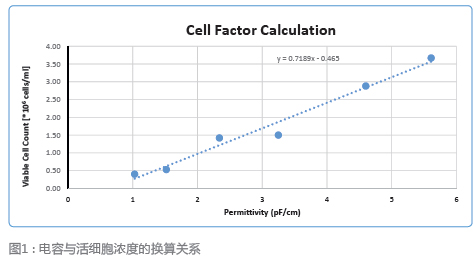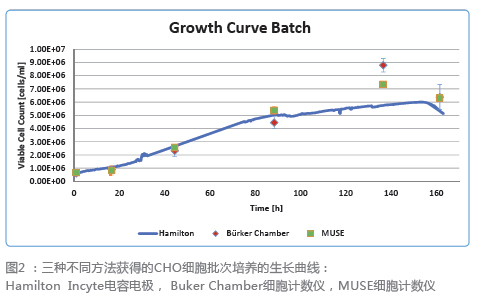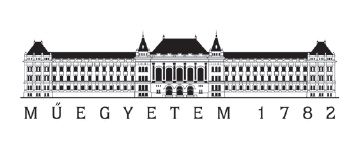 | |
| ——Comparison of Incyte technology and offline cell density measurement technology Comparison of different cell density measurement techniques in the R&D phase: CHO cell production of monoclonal antibodies Hamilton Products: Incyte, PC Box Chinese hamster egg cells (CHO) are the most commonly used cells in the production of therapeutic and diagnostic monoclonal antibodies. The cultivation of mammalian cells is costly, and any adverse factors affecting cell growth should be avoided as much as possible. Studies have shown that more than 15% of cell culture experiments have process understanding errors and pollution problems, leading to unfavorable consequences such as excessive consumption of nutrients, accumulation of withered cells, changes in culture properties, changes in genetic properties, and the like. Therefore, the cultivation of CHO cells in a bioreactor must ensure aseptic conditions, thereby ensuring the economics and scalability of the production process. Now scientists can obtain most of the parameters about cell growth, such as cell viability, by sampling and off-line analysis, and get information about culture conditions. However, sampling and off-line analysis have various problems, such as increasing the risk of contamination in the culture process, requiring a large number of skilled technicians and a large amount of time to sample and analyze the data, and only obtain data on the limited growth process of the cells. Fortunately, we now have online technology to monitor cell growth, thereby reducing the risk of contamination and not missing key nodes in the culture process. The University of Technology and Economics in Budapest, Hungary, has done a lot of work on cell culture processes. They used Hamilton's online cell density monitoring technology (Incyte) to monitor the cell culture process and compare the results with existing off-line analysis methods. Incyte advantage  1. Identification of feed points in fed-batch process 2. Continuous information about cell growth 3, reliable 4, convenient 5, improve the yield 6, optimize the feeding strategy | |
| Cell coefficient Before doing online measurements, we first need to determine the cell coefficient, the conversion between cell density and dielectric constant. Figure 1 shows the linear relationship between cell density and dielectric constant. Through this linear conversion, we can easily convert the dielectric constant obtained by direct measurement into other units (for example, number/L, etc.). |  |
| Batch culture The batch culture process of the cells was first monitored. Figure 2 shows the growth trends of cells obtained by different cell density measurement methods. It can be seen from the figure that in the later stage of the culture process, the cell density becomes larger, the nutrient content decreases, and the off-line measurement data deviates significantly from the online data. |  |
| Feeding - batch culture In the process of fed-batch culture, the curves obtained for the changes in cell density obtained by three different methods were also compared. After the initial stage of the culture, 15% by volume of the feed was added every 48 to 72 hours. As can be seen from Figure 3, each feed was monitored in time by the Incyte electrode. (The dielectric constant decreases as the cell density is diluted). In general, offline and online data are well correlated during the cell proliferation phase. In addition, Figure 3 also shows that the offline method wants to not miss important information about the cultivation process, and it is necessary to design the sampling time. |  |
Http:// | |
 | Author Eszter Szabó, Annamária Fricska, Edit Hirsch, András Ballagi* Budapest University of Technology and Economics, Biotechnology unit at Pharmatech Model Laboratory, Hungary, H-1111 Budapest, Muegyetem rkp. 3 *······ Diagon Ltd. Hungary, H-1047 Budapest, Baross u. 48-52 |
Canned Bigeye Tuna,Bigeye Tuna Chunk in Oil Can,Tuna Salad Can
Zhejiang ocean family co.,ltd , https://www.ocean-family.com